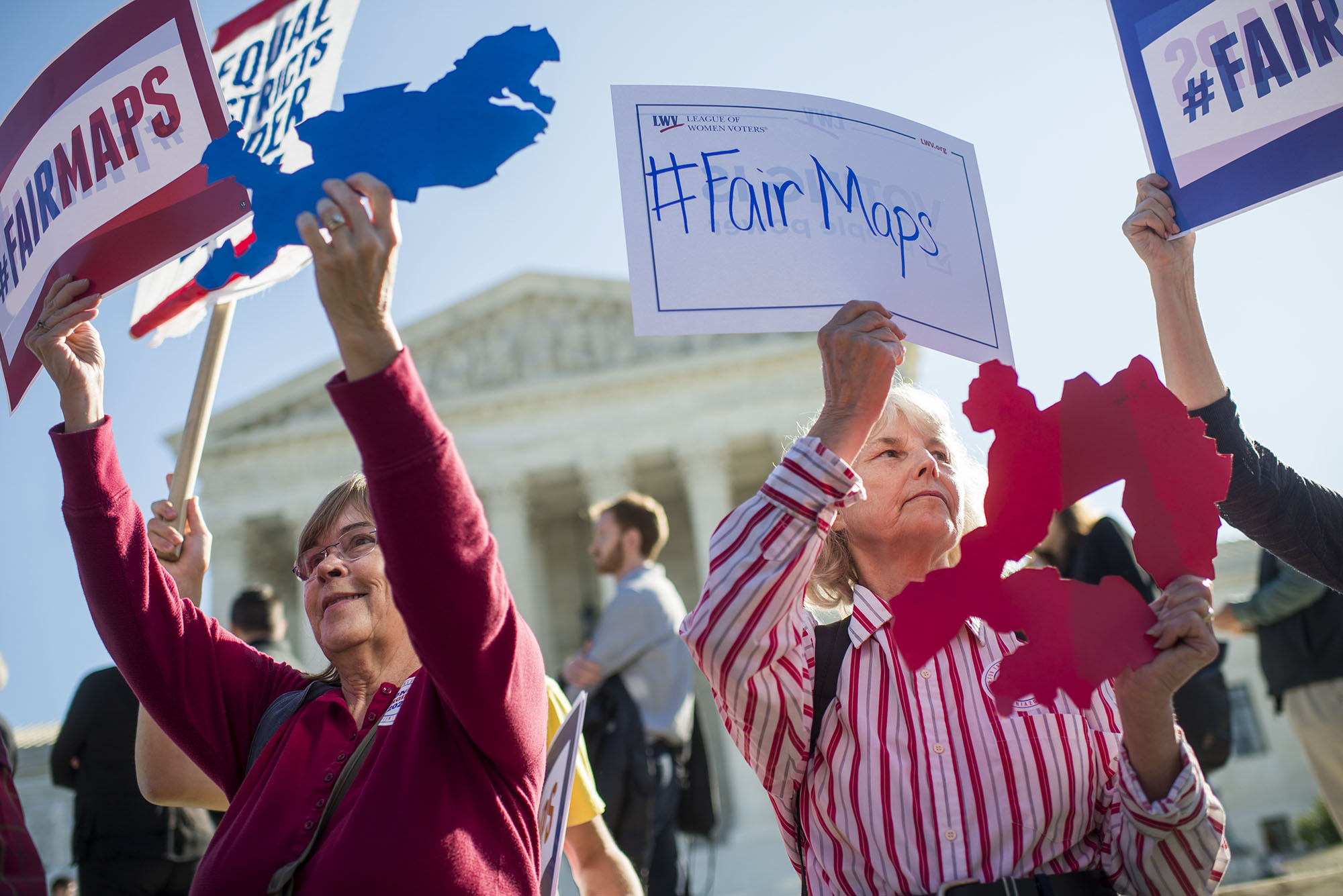Will Supreme Court Conservatives Split on Voting Rights?
A new case before the high court could “offer an interesting bellwether on how organized the Republican appointees are as a bloc,” says BU LAW’s Robert L. Tsai

The Supreme Court will hear a case on October 11 that hinges on the redrawn voting districts of South Carolina. Photo by Tom Williams/CQ Roll Call (CQ Roll Call via AP Images)
Will Supreme Court Conservatives Split on Voting Rights?
A new case before the high court could “offer an interesting bellwether on how organized the Republican appointees are as a bloc,” says BU LAW’s Robert L. Tsai
A new case before the US Supreme Court on October 11 could provide new insight on where the high court stands on voting rights—and whether the conservative majority opts to hang together as a bloc on an issue that could play a critical role in the 2024 election.
The case, Alexander v. South Carolina State Conference of the NAACP, hinges on a congressional map that South Carolina state legislators drew after the 2020 census. The US Constitution requires that states take a census every 10 years, and that new information is used by state officials to redraw voting districts that reflect changes in population. Ideally, the new districts are more equal. A number of state and federal statutes dictate how voting district boundaries should be drawn, but in this deeply political process, district boundaries can be drawn to favor one party over another, or as the South Carolina State Conference of the NAACP alleges, one race over others.
This case, says Robert L. Tsai, a BU School of Law professor and a Law Alumni Scholar, may well be a litmus test for the Supreme Court’s conservative majority. Unlike abortion, Tsai says—an issue around which conservatives have coalesced for decades—voting rights presents a more divided set of loyalties.
BU Today spoke to Tsai about the case and what’s at stake.
Q&A
with Robert L. Tsai
BU Today: Could you sum up this case in a few sentences?
Tsai: This is an appeal of a voting rights decision by the State of South Carolina, which lost [in lower courts]. A three-judge panel had found that the map drawn by the state legislature after the 2020 census violated the equal protection clause of the 14th Amendment because race was a predominant factor in the changes and that partisanship, to the extent it came up, was being used as a proxy for race. The panel found that legislators engaged in racial gerrymandering by moving 63 percent of Black voters from one district to another district by “packing” so many Black voters into one district to make it easier for white voters to elect their preferred candidates. This move made Rep. [James E.] Clyburn’s (Democratic) seat even more Democratic, but made Rep. [Nancy] Mace’s (Republican) seat, which had flipped back and forth between the two parties, more Republican.
BU Today: Broadly speaking, what’s at stake here?
Tsai: The state contends that lawmakers did not engage in racial gerrymandering, but instead engaged in gerrymandering for partisan purposes.
In an earlier [2019] decision, Rucho v. Common Cause, the Roberts Court ruled that manipulating districts for primarily partisan purposes raised a political question, and was therefore not justiciable in federal courts. That created a gap in the judicial power to preserve fair elections because lawmakers could engage in intentional malapportionment, but claim that it was only to dilute the power of members of a different party rather than to dilute the electoral power of minority voters. The Rucho decision has not been particularly helpful in acknowledging that, especially in polarized times, party membership can be used as a fairly reliable indicator of race.
South Carolina’s appeal will give the Supreme Court a chance to clarify when it will defer to the findings of a lower court that either one or the other is happening, and perhaps what to do when race and partisanship are on the minds of legislators when they redraw maps. If the justices make it too easy for states to hide behind the claim of partisan gerrymandering, they would undermine the federal courts’ historic role in enforcing the equal protection clause and Voting Rights Act of 1965.
BU Today: What will you be listening for, during oral argument on October 11?
Tsai: I will be listening for which justices seem inclined to defer to the factual findings [from lower courts] and which justices may be champing at the bit to say that the unanimous panel somehow erred in finding that race was the predominant factor. This will tell us which justices are in a more aggressive mood. South Carolina’s lawyers claimed that the lower court “presumed bad faith” on the part of lawmakers.
I will also be listening to whether [John] Roberts and [Brett] Kavanaugh show any interest in defending the strong commitment to preserving a functioning democracy and the landmark Voting Rights Act or whether, like many former Republican executive branch lawyers, they are interested in continuing the project to restrict its reach to only the most visible and formal obstacles to voting.
BU Today: Do you have a sense of how this decision might go?
Tsai: This case may offer an interesting bellwether on how organized the Republican appointees are as a bloc: it’s not abortion, where they held together to complete the conservative legal movement’s longtime project on an issue that joins traditionalists and mainstream conservatives.
On voting rights, many conservative elites and GOP state legislators have long chafed at Warren Court rulings aggressively enforcing the Voting Rights Act. At the same time, they still believe in democracy and have an interest in not turning a blind eye to obvious instances of racism because they worry that the party cannot appeal to suburban voters. Certain movement jurists are not as committed to the principle of “one person, one vote” and are fine with a return to indirect rule, and less worried about the consequences of further restricting judicial enforcement of voting rights (say, greater malapportionment and egregious partisan entrenchment of power).

Comments & Discussion
Boston University moderates comments to facilitate an informed, substantive, civil conversation. Abusive, profane, self-promotional, misleading, incoherent or off-topic comments will be rejected. Moderators are staffed during regular business hours (EST) and can only accept comments written in English. Statistics or facts must include a citation or a link to the citation.